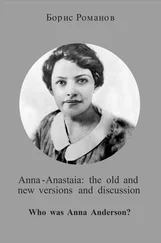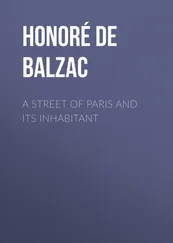Henry Edwards - Old and New Paris - Its History, Its People, and Its Places, v. 1
Здесь есть возможность читать онлайн «Henry Edwards - Old and New Paris - Its History, Its People, and Its Places, v. 1» — ознакомительный отрывок электронной книги совершенно бесплатно, а после прочтения отрывка купить полную версию. В некоторых случаях можно слушать аудио, скачать через торрент в формате fb2 и присутствует краткое содержание. Жанр: foreign_antique, foreign_prose, Путешествия и география, на английском языке. Описание произведения, (предисловие) а так же отзывы посетителей доступны на портале библиотеки ЛибКат.
- Название:Old and New Paris: Its History, Its People, and Its Places, v. 1
- Автор:
- Жанр:
- Год:неизвестен
- ISBN:нет данных
- Рейтинг книги:4 / 5. Голосов: 1
-
Избранное:Добавить в избранное
- Отзывы:
-
Ваша оценка:
- 80
- 1
- 2
- 3
- 4
- 5
Old and New Paris: Its History, Its People, and Its Places, v. 1: краткое содержание, описание и аннотация
Предлагаем к чтению аннотацию, описание, краткое содержание или предисловие (зависит от того, что написал сам автор книги «Old and New Paris: Its History, Its People, and Its Places, v. 1»). Если вы не нашли необходимую информацию о книге — напишите в комментариях, мы постараемся отыскать её.
Old and New Paris: Its History, Its People, and Its Places, v. 1 — читать онлайн ознакомительный отрывок
Ниже представлен текст книги, разбитый по страницам. Система сохранения места последней прочитанной страницы, позволяет с удобством читать онлайн бесплатно книгу «Old and New Paris: Its History, Its People, and Its Places, v. 1», без необходимости каждый раз заново искать на чём Вы остановились. Поставьте закладку, и сможете в любой момент перейти на страницу, на которой закончили чтение.
Интервал:
Закладка:
The great Montesquieu, moreover, when he was in England, had not thought it unbecoming to interest himself in the welfare of the French artists who occasionally arrived in England with recommendations addressed to him. Nor did the illustrious Locke occupy himself so exclusively with the “human understanding” as to have no time to bestow on the material interests of foreign danseuses . Locke was not indeed one of those practically Epicurean philosophers of whom M. Arsène Houssaye discourses so agreeably in his “Philosophes et Comédiennes.” He had no general taste either for the public performances or for the private society of ballerines ; but a certain Mlle. Subligny having come to him with a letter of introduction from the Abbé Dubois, he is known to have made himself useful, and therefore, no doubt, agreeable, to her during her stay in England.
Locke, it is true, was a metaphysician, and had nothing whatever to do with diplomacy. But his friend Montesquieu was a personage of political importance, and in his anxiety to assist French artists in London he even went so far as to bring to their performances as many of the English nobility as were willing to attend. About the same time, at the suggestion of the Regent of Orleans, a Minister of State, M. de Maurepas, made overtures to Handel concerning a series of representations which it was proposed that his celebrated company should give at the Académie Royale of Paris. M. de Maurepas wished, like Mr. Washburne at a later day, to secure for Paris the best available talent; and he looked to Handel’s opera-house for singers, as Mr. Washburne looked to the circuses of the United States for “bare-back riders.”
On this subject Ebers’s “Seven Years of the King’s Theatre” shows that immediately after the peace of 1815 all the offers of engagements to artists of the Paris opera were made through the medium of the English Embassy to the Court of France, or by special missions with which diplomatists of distinction were glad to be entrusted. The committee of noblemen who aided Ebers in his management treated, through the English Ambassador at Paris, with the Director of the Academy, or with the Minister of Fine Arts; though, as a matter of fact, they failed to secure by these elaborate means the services of artists who, in the present day, would be engaged through an exchange of telegrams.
The outbreak of the Revolution was the signal for the Astleys and their company to recross the Channel, and the Astley Circus remained unoccupied until 1791. Then a company calling themselves “The Comedians without a Title” ( Les Comédiens sans titre ) opened it as a theatre on Thursday, March 20th, and closed it on the 23rd. Finally Franconi took it over, and achieved a triumphal success, his management being destined to last many years. In 1801 he moved his enterprise to the Garden of the Capucines, which had become a public promenade in the heart of Paris, subsequently transferring it to the theatre in the Rue du Mont-Thabor. In 1819 he returned with his company to the circus of the Faubourg du Temple, reconstructed by the architect Dubois, but doomed, on the night of March 15th, 1826, to be burnt to the ground. The destruction of the circus by fire excited much sympathy. Public subscriptions were opened, and public representations given for the benefit of the sufferers, the result being so satisfactory that the theatre was at once reconstructed, this time on the Boulevard du Temple, with a magnificent façade, and Franconi once more threw open his doors, about a year after the fire, on the 31st of March, 1827. The stage, which in the old building was an accessory, became in the new one of the first importance. It was now possible to perform military manœuvres on a large scale. At the restored circus was represented during the last years of the reign of Charles X. the Siege of Saragossa ; and under Louis Philippe a number of military pieces founded on incidents in the history of the Republic and the Empire.
Every Government in France since the first Napoleon has had victories of its own, important or unimportant, to celebrate. The martial triumphs of Louis XIV. seem, by common consent, to have been forgotten, either because French history dates for the immense majority of the population from the time of the Revolution, or because the battles won under the old Monarchy are now too remote to stir the national pride. The reign of Napoleon I., however, was a series of brilliant victories. Under the Restoration a campaign was undertaken in Spain, the incidents of which so lent themselves to dramatic treatment that playwrights reproduced them on the stage and in the arena of the circus. The reign of Louis Philippe, too, had its military glories; first in Belgium, in connection with the War of Independence undertaken in 1830 by the Belgians, with the assistance of France and England, against the Dutch. It was in Africa, however, and in the neighbourhood of Algiers, that Louis Philippe’s army played for many years so active a part. The war against the Dey of Algiers was begun by Charles X., whose consul had been insulted by that potentate; Louis Philippe continued it, chiefly, it was thought, in order to keep open for discontented spirits a field of activity at a safe distance from France. Many restless adventurers sought distinction and found it in the Algerian campaigns; and Algeria was the principal training-ground for those generals who were afterwards to aid Prince Louis Napoleon in executing his coup d’État . It was under Louis Philippe that those picturesque troops, the Chasseurs d’Orléans and Chasseurs d’Afrique, were created, not to mention the Zouaves and the Spahis.
According to the criticisms of German officers, the laxity of discipline in the Algerian campaigns had a considerable effect in producing, or at least hastening, the long series of military defeats to which France was subjected in the war of 1870. The news of victories gained in Africa was, all the same, constantly reaching France; and each successive triumph was made the subject of a new dramatic spectacle at the circus or hippodrome. Abd-el-Kader became a familiar theatrical figure, and his famous interview with General Bugeaud was represented in more than one equestrian piece.
Abd-el-Kader had by the most violent means been prevailed upon to make peace; and an interview was arranged at which the Arab chief and Bugeaud, the French commander, were to ratify it by a personal interchange of promises. Abd-el-Kader did not, however, keep his appointment, and seems, indeed, to have studiously missed it. The French general, in a fit of impatience, left his room, and went forward with a small escort, military and civil, towards the quarters of the unpunctual Arab chief, in order to stir him up. On reaching the advanced posts, the French general called a chieftain of one of the tribes, who pointed out to him the hill-side where the emir lay encamped. “It is unbecoming of your chief,” said Bugeaud to this Arab, “to bring me so far, and then make me wait so long;” whereupon he continued resolutely to advance. The emir’s escort now appeared. The Arab chieftains, most of them young and handsome, were magnificently mounted, and made a gallant display of their finery. Presently from their ranks a horseman advanced dressed in a coarse burnoose, with a camel-hair cord, and without any outward sign of distinction, except that his black horse, which he sat most elegantly, was surrounded by Arabs holding the bridle and the stirrups. This was Abd-el-Kader. The French general held out his hand; the other grasped it twice, then threw himself quickly from his horse, and sat down. General Bugeaud took his place beside him, and the conversation began. The emir was of small stature; his face serious and pale, with delicate features slightly marked by time, and a keen sparkling eye. His hands, which were beautifully formed, played with a chaplet that hung round his neck. He spoke gently, but there was on his lips and in the expression of countenance a certain affectation of disdain. The conversation turned, of course, upon the peace which had just been concluded, and Abd-el-Kader spoke of the cessation of hostilities with elaborate and feigned indifference. When the French general, after pointing out to him that the treaty could not be put into force until it was ratified, observed that the truce, meanwhile, was favourable to the Arabs, since it would save their crops from destruction so long as it lasted, the chief replied: “You may destroy the crops this moment, and I will give you a written authority to do so, if you like. The Arabs are not in want of corn.”
Читать дальшеИнтервал:
Закладка:
Похожие книги на «Old and New Paris: Its History, Its People, and Its Places, v. 1»
Представляем Вашему вниманию похожие книги на «Old and New Paris: Its History, Its People, and Its Places, v. 1» списком для выбора. Мы отобрали схожую по названию и смыслу литературу в надежде предоставить читателям больше вариантов отыскать новые, интересные, ещё непрочитанные произведения.
Обсуждение, отзывы о книге «Old and New Paris: Its History, Its People, and Its Places, v. 1» и просто собственные мнения читателей. Оставьте ваши комментарии, напишите, что Вы думаете о произведении, его смысле или главных героях. Укажите что конкретно понравилось, а что нет, и почему Вы так считаете.












